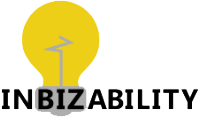
Freelancing has exploded in popularity in recent years, and now the gig economy is the primary source of income for around 11 percent of full-time US workers. The opportunities are there — corporations are increasingly looking for contractors to help them plug short-term skill gaps and pull in fresh ideas, while advances in technology allow freelancers to work from home more easily. But the gig economy is certainly not an easy way to make a living, and not everyone makes it. The ones that do tend to possess a few key characteristics — read on to find out what they are.
They Are Tenacious and Persistent
Tenacity and persistence are not the same thing, and you’ll need both in the gig economy. You’ll need persistence to send out those pitch emails day after day, despite constant rejections — although of course, avoid being pushy. Rejection and setback comes with the territory, and unless you’re a big name in your field, you’ll be reaching out a lot for new clients. But you’ll also need the tenacity to adapt your approach, try different sales and marketing methods, or even to move into new markets when you think it’s appropriate.
They Embrace Change
Change is part of the game as a freelancer. The landscape evolves rapidly thanks to trends and advances in technology. Today many freelancers get 100 percent of their clients online, but this wasn’t the case just a few years back. For example, many freelancers find work through online jobs boards including Upwork. However, you shouldn’t put all your eggs in one basket. Maybe in a couple of years social media will be the best way to find clients. You’ll need to be aware of current trends in digital marketing as well as the best practices within your own industry and be ready to adapt to the changing landscape.
They Take the Right Risks
As Mobile Worker points out, the gig economy comes with certain risks — you don’t get a stable income, pensions or other benefits, and your work-life balance could be challenging. Successful freelancers are good at calculating risk — what they will potentially gain and lose by each decision. They also have mentors who can guide them in their decisions and they consciously try to learn from the decisions they have made in the past.
They Create a Personal Holding Environment
While the corporate environment may not be preferable to everyone, it does still have its advantages — a consistent routine, comfortable working spaces and social support. A study published in the journal Administrative Science Quarterly found that freelancers in the gig economy create a “personal holding environment,” which is a way of recreating these benefits in solo work. For example, they identify the physical conditions in which they work best — whether that’s a quiet room at home, a shared workspace, or a cafe. They also create a support group of people in the same line of work who they go to for advice, or just to sound off. Additionally, they stick to a consistent and regular work routine as much as possible.
While freelancers lose the comfortable safety net of a steady wage, but you’ll open yourself up to greater variety of work, more freedom and better pay. But you have to manage your own learning, both personally and professionally. Keep improving your professional skills, take steps to develop in the above four areas, and you’ll have a great chance of success.
Photo: Pixabay
